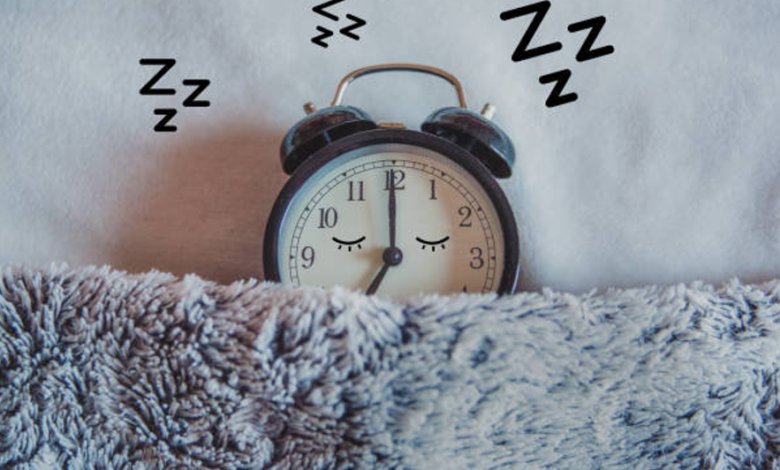Stress And Its Signals: How to React in Time

What if we told you that stress isn’t always bad? Yeap, it isn’t. In fact, stress is a natural survival response of your body to challenges in your environment. Under stress, your brain rings the alarm and tells the body to produce adrenaline and cortisol, stress hormones, to prepare your body for a fight or flight response: your heartbeat races, your palms sweat, and your focus sharpens. In the end, you get things done.
So, what’s the problem? It’s the prolonged exposure to stress that makes your mind and body feel sick. Here is how you can recognize stress signals in time to pause and reset.
What are stress signals?
Stress signals are both physical and emotional changes your body and mind use to tell you that you’re under pressure. If you check out a mental health app review like a Liven app review, you’d see that one can track their mood and behavior and identify stress before it turns chronic and harms their health.
Let’s start with the physical stress symptoms.
#1: Sleep disturbances
Counting sheep doesn’t help. Nor does reading paper books, drinking camomile tea, and star-gazing. Again, any mental health app review, such as a Liven app review, will tell you that sleep issues are one of the first red flags of chronic stress.
Prolonged stress exposure might cause:
- Insomnia;
- Difficulty falling asleep;
- Waking up at night or too early and being unable to fall asleep again;
- Sleeping too much;
- Having nightmares or vivid dreams.
#2: Aches and pains
Ever felt like your shoulders are carrying a backpack full of bricks for no reason? Well, prolonged stress exposure is notoriously related to aches and pains that come and go without any explanation. Headaches, muscle tension, jaw clenching, you name it.
Among the top pains people name that have no explainable cause are:
- Tension headaches;
- Neurological pain (chest tightness, tingling, or unexplained numbness);
- Heartache, increased heart rate, heart palpitations;
- Stomachache accompanied by nausea and other gastrointestinal problems.
#3: Low energy levels
Even on days when you’ve managed to get an 8-hour beauty sleep, you still might feel drained. If your body gets more and more exhausted regardless of the number of hours you sleep, time may be to address the problem.
Watch for:
- Midday crashes. Chronic stress dysregulates your cortisol rhythm. Naturally, this stress hormone spikes right after you wake up and keeps dropping during the day. However, stress might disrupt the balance and make you sluggish and sleepy around midday;
- Brain fog. You might experience trouble concentrating or staying alert. Chronic stress reduces blood flow and oxygen to the prefrontal cortex, the brain area responsible for focus, memory, and decision-making. Plus, things definitely get worse if you’re already dealing with sleep issues;
- Heavy limbs or feeling physically sluggish. Stress activates the sympathetic nervous system, which prepares you for fight-or-flight response. However, when this system is active for too long, your muscles get tense and overworked. That’s why you might feel soreness and physical fatigue;
- Lack of stamina. Your mitochondria aka the energy powerhouses in your cells take a hit from chronic stress and inflammation. Less energy at the cellular level = less energy for daily tasks.
Now let’s move to the emotional stress signals.
#4: Anxiety and worries
When you’re under constant stress, going through a day might feel like having the weight of the world on your shoulders. You might experience constant worries about work/family/health/you-name-it and try desperately to predict the outcomes of any situation. You might also feel agitated, nervous, irritable, and restless.
Other things to also look for are:
- Frequent conflicts. You might snap at others or misread intentions;
- Overthinking, such as playing out worst-case scenarios in your mind;
- Difficulty relaxing or enjoying downtime, since you’re constantly overwhelmed and worried.
⚠️ On the contrary, you might feel numb, hopeless, and have no interest in activities that once brought you joy. But only a specialist can tell whether you’re going through depression.
If the feelings persist, please don’t hesitate to seek a professional medical health consultation.
#5: Lack of motivation
Meeting deadlines is a Herculean task for you. You can’t motivate yourself to initiate the task, let alone finish it on time. Overall, things might look boring or pointless.

And sure, most of the time low motivation will come with low energy or fatigue and lack of interest. Again, if you feel these symptoms are unbearable and heavily interfere with your daily life, time might be to talk to a mental health professional.
#6: Unhealthy behaviors
Some stress-related theories also include behavioral signs. Let’s take a look at the most common.
1: Social withdrawal
You might decline invitations, cancel plans at the last minute, avoid phone calls, or ghost group chats because interacting with others feels emotionally draining.
2: “Nervous” habits
When your nervous system is overwhelmed, your body often tries to release tension through small, repetitive behaviors. Sometimes, you won’t even notice them as these behaviors are unconscious coping mechanisms that help your body self-soothe and regulate.
These behaviors might include:
- Nail biting
- Leg bouncing
- Fidgeting
- Chewing on pens
- Over-checking things (like your phone or locks)
3: Substance use
When daily stress becomes unbearable, people often turn to substances like alcohol, cannabis, nicotine, or stimulants to numb, escape, or cope with unpleasant feelings.
Sure, occasional use is harmless, but increased reliance or dependency is a sign that your body and mind struggle to regulate stress on their own.
4: Responsibilities neglect
Stress depletes mental and emotional resources. That’s why even the simplest responsibilities like taking out the trash feel overwhelming.
You may:
- Avoid household chores
- Miss work deadlines or skip classes
- Forget important errands or appointments
- Let bills, emails, or messages pile up
Final thoughts
Stress is not your enemy. It’s your body’s signals that you’re tired, overwhelmed, and need rest. And when you spot the signs early, you give yourself a better chance to heal before burnout or illness sets in.
Remember: just one small step at a time. You’ve got this! 💚



